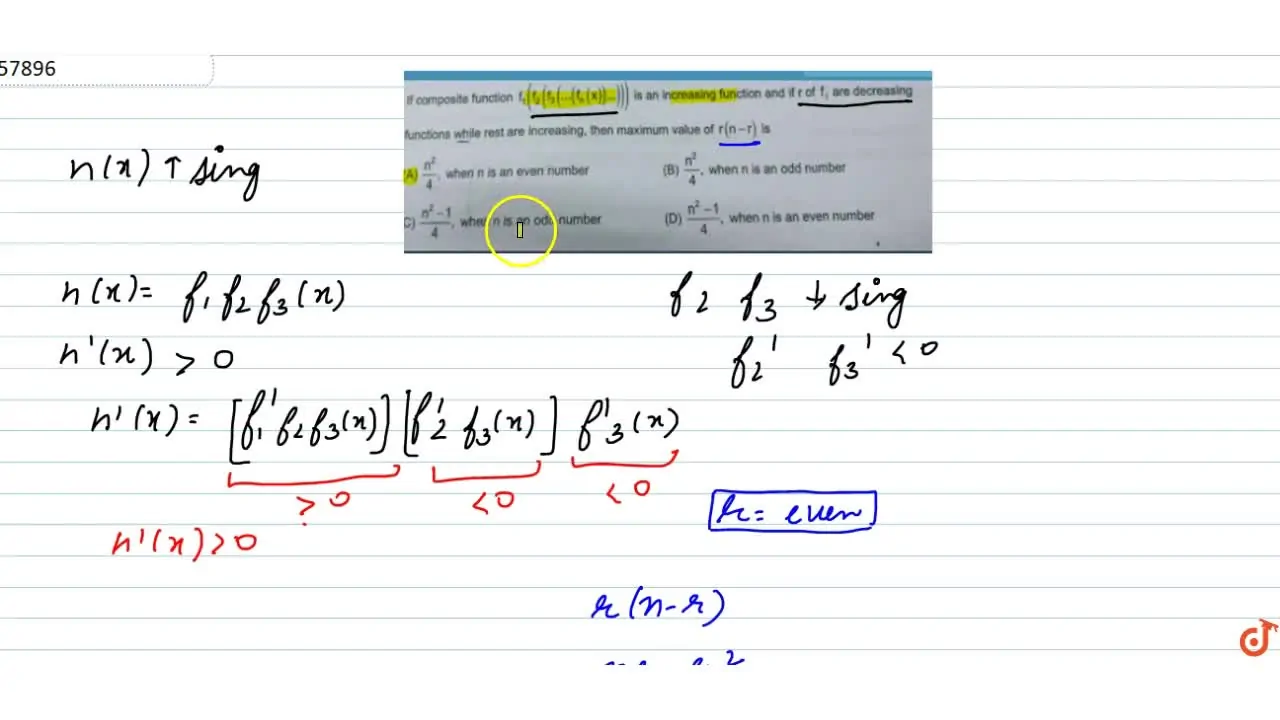If composite function f1(f2(f3((fn(x))))n timesis an increasing function and if r of fi's are decreasing function while rest are increasing, then the maximum value of r(n−r) is n2−14 , when n is an even number n24, when n is an odd number n2−14, when n is an odd number n24, when n is an even number
Step by step video & image solution for If composite function f_1(f_2(f_3((f_n(x))))n timesis an increasing function and if r of f_i ' s are decreasing function while rest are increasing, then the maximum value of r(n-r) is (n^2-1)/4 , when n is an even number (n^2)/4, when n is an odd number (n^2-1)/4, when n is an odd number (n^2)/4, when n is an even number by Maths experts to help you in doubts & scoring excellent marks in Class 12 exams.
Similar Questions
If tn={n2, when n is evenn2+1, when n is odd
find t15−t10View SolutionThe function f(x)=(4sin2x−1)n(x2−x+1),n∈N, has a local minimum at x=π6 . Then (a) n is any even number (b) n is an odd number (c) n is odd prime number (d) n is any natural number
View SolutionIs the function f(x)=x3n,n∈N even?
View SolutionFind the sequence of the numbers defined by
an={1nwhen n is odd−1nwhen n is evenView SolutionLet f:N→N:f(n)=⎧⎪ ⎪⎨⎪ ⎪⎩12(n+1), when n is odd n2, when n is even
Then f isView SolutionThe function f:N→N (N is the set of natural numbers defined by f(n)=2n+3 is :
View SolutionFind the sequence of the numbers defined by-, when n is odd--, when n is even
View SolutionA function f from the set of natural number to integers defined by
f(n)={n−12when n is odd−n2when n is evenView SolutionThe function f:N→N (N is the set of natural numbers defined by f(n)=2n+3 is :
View SolutionA sequence is defined as following.(n(n+2), if n is an even natural number. 4nn2+1, if n is an odd natural number. Find the value of 18th and 25th term
View Solution


